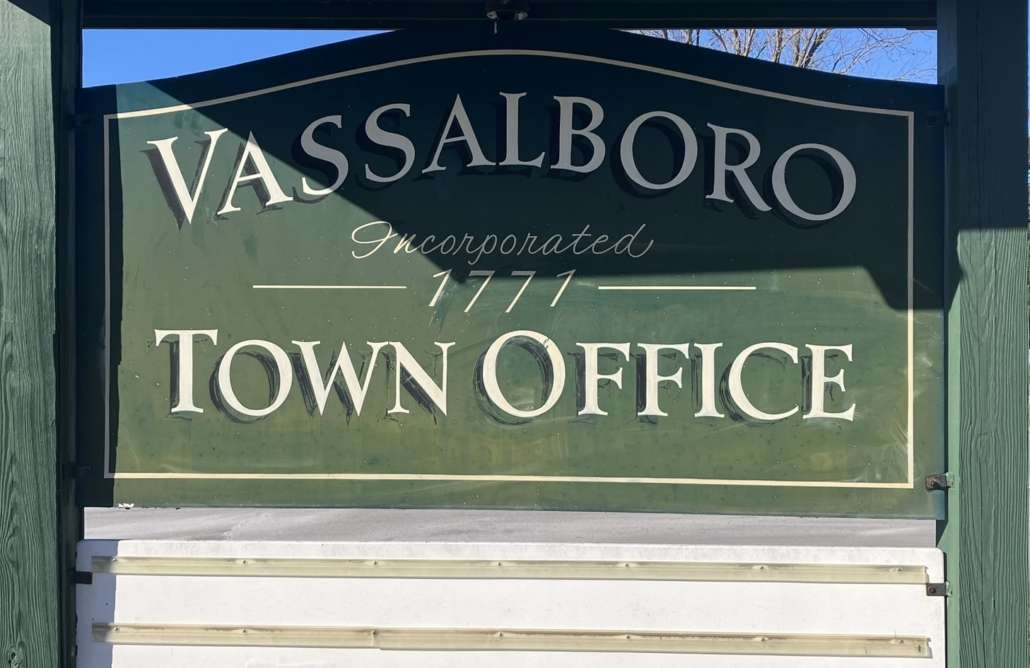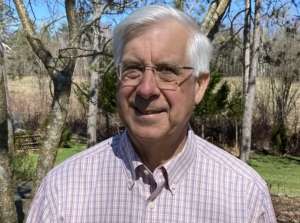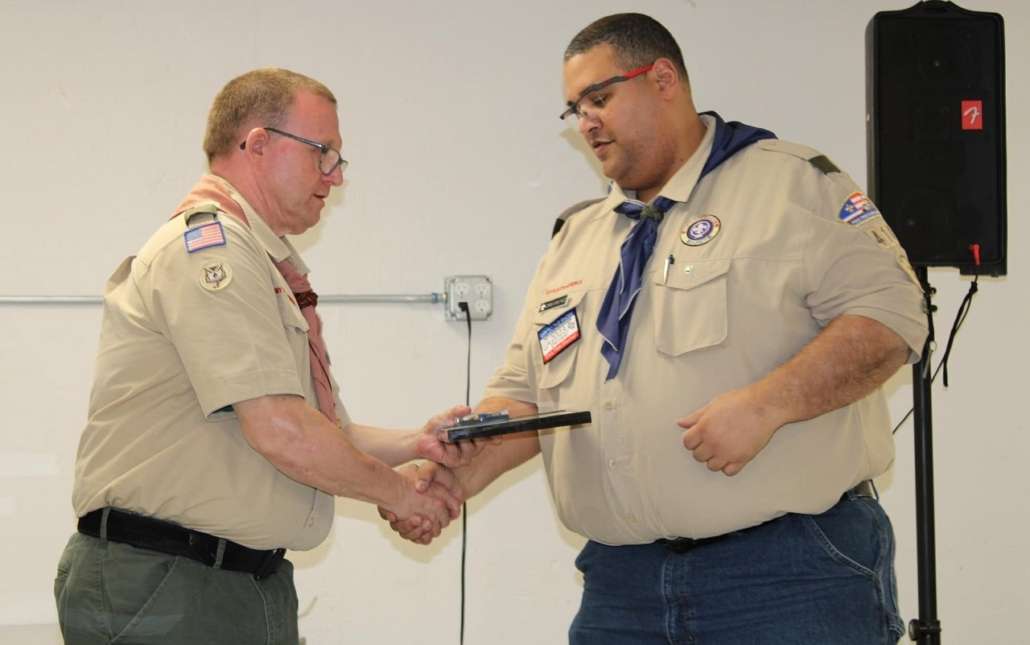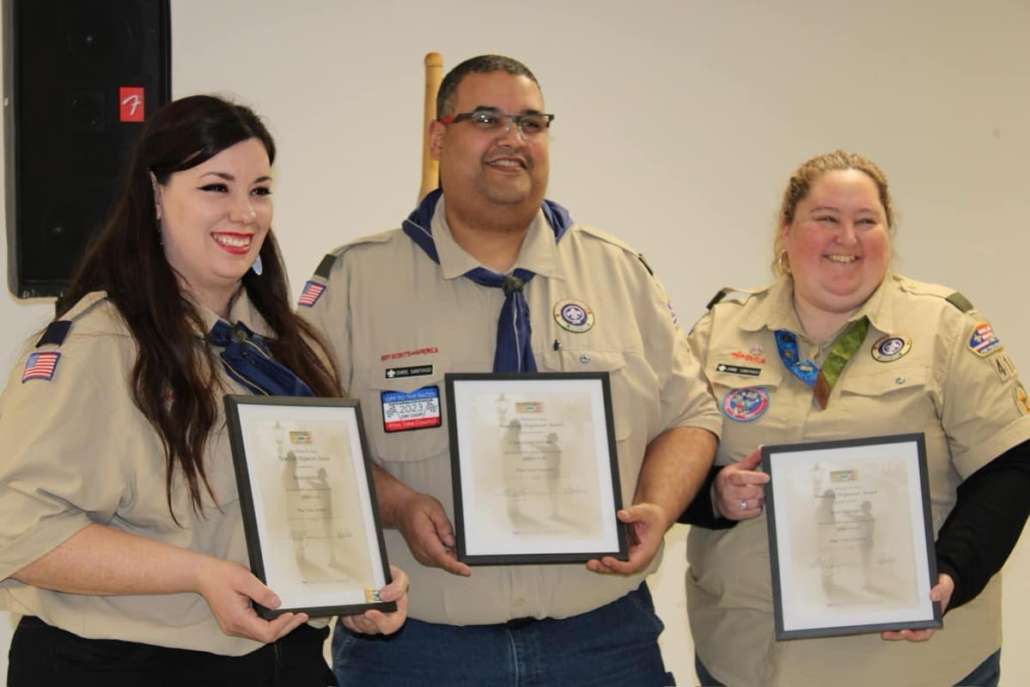Vassalboro select board discusses road work, sanitary district
 Town attorney rules protest letter does not meet requirement for petition
Town attorney rules protest letter does not meet requirement for petition
by Mary Grow
The April 18 Vassalboro select board meeting was in sections. After an hour and a half discussing road work, Vassalboro Sanitary District customers’ communication and other matters, board members recessed for an executive session with the town attorney.
They then spent another half hour in open meeting talking about the draft warrant for the June 3 and 11 town meeting, before another short executive session.
The only action taken after either executive session was a prompt adjournment after the second one.
Proposed road repaving has been discussed repeatedly among select board and budget committee members, with information and recommendations from Brian Lajoie of the public works department. After the April 16 budget committee meeting, attendees thought they had agreed that the big project for the summer of 2024 would be repaving the Church Hill Road to the Augusta line.
At the April 18 select board meeting, Lajoie advised reconsidering. Central Maine Power Company plans to replace lines along that road, he said, and the company’s heavy machinery would chew up the new pavement.
Although, he said, CMP is supposed to pay for any damage, he still preferred to postpone the repaving.
Select board members therefore tentatively added back into the 2024 paving schedule several shorter stretches of town road. As of April 18, Art. 5 in the draft town meeting warrant allocates $570,000 for road paving.
The other road issue discussed was the state Department of Transportation’s (MDOT) planned replacement of the Meadow Brook bridge on Bog Road, about seven-tenths of a mile west of the four-way intersection in East Vassalboro.
MDOT Project Manager Gary Libby said the current schedule calls for the work to be bid out in December 2024 and done in the summer of 2025.
The plan is to replace the bridge with a box culvert. Libby described the culvert and the roadway above, which he said will have 11-foot travel lanes and three-foot shoulders, making it a bit wider than the current bridge.
Work will include installing a dry hydrant for the Vassalboro Fire Department. The department is to provide materials and oversee the contractor’s installation.
An on-line public forum in May, dates to be announced, will let residents ask questions and offer comments.
Libby expects work to start after June 15 and to take about six weeks.
MDOT’s proposed detour uses Taber Hill and Gray roads. Gray Road runs west from Route 32 to its intersection with Taber Hill, where traffic would make a sharp left turn to go south to Bog Road on the west side of the detour.
Board and audience members questioned whether trucks would have trouble with the sharp turn at the intersection, and whether increased traffic would be hard on Gray Road. Lajoie and others said Gray Road is scheduled for repaving this summer, and it does not have a very strong base.
Libby was willing to investigate a truck route following Taber Hill Road north to Oak Grove Road, where traffic could turn east and join Route 32 in North Vassalboro. The sight lines where Taber Hill Road joins Oak Grove Road would be one factor to consider, he said.
The Vassalboro Sanitary District discussion was sparked by what Town Manager Aaron Miller called a letter of protest from residents served by the District, who have repeatedly asked for help with high user fees. The document was intended as a petition, Miller said, but the town attorney said it did not meet requirements, and it lacked the needed 219 signatures.
Miller said he had advised the senders what to do if they wanted to submit an article for the warrant for the June 3 town meeting.
During the first part of their meeting, select board members:
— Appointed Albion resident Cindy Spaulding to the Vassalboro Cemetery Committee. Miller summarized her credentials and said current cemetery committee members were satisfied.
— Approved $15,000 in ARPA (American Rescue Plan Act) funds for the volunteer fire department for turnout gear (see the April 18 issue of The Town Line, p. 3).
— Agreed by consensus to postpone buying a new backhoe.
After the first executive session, they reviewed Miller’s preliminary draft of the town meeting warrant. As of April 18, the warrant had 41 articles to be acted on at the open meeting, scheduled for 6:30 p.m., Monday, June 3, in the Vassalboro Community School gymnasium.
Another three articles are to be voted by written ballot on Tuesday, June 11, at the town office, with polls open from 8 a.m. to 8 p.m. Local elections will be held at the same time and place.
Town Clerk Cathy Coyne reported two incumbents submitted nomination papers for two positions on local boards: Christopher French for a three-year term on the select board, and Jolene Clark Gamage for a three-year term on the school board.
Miller said veteran moderator Richard Thompson has agreed to moderate the town meeting, for the last time; he plans to retire after this year.








